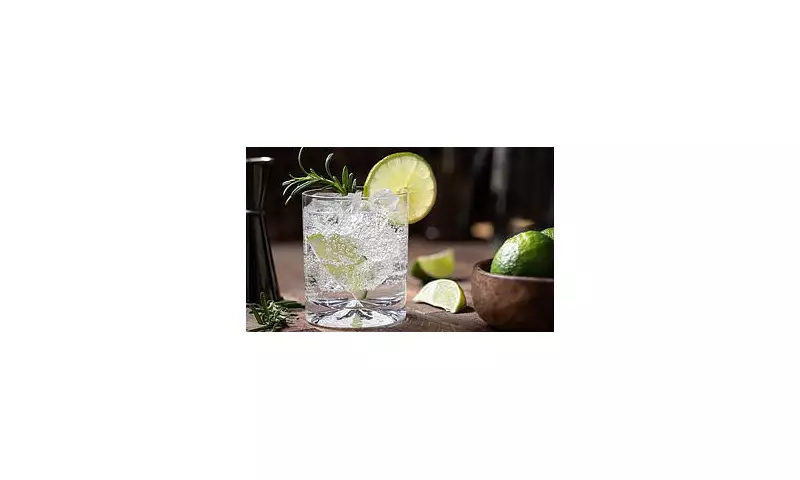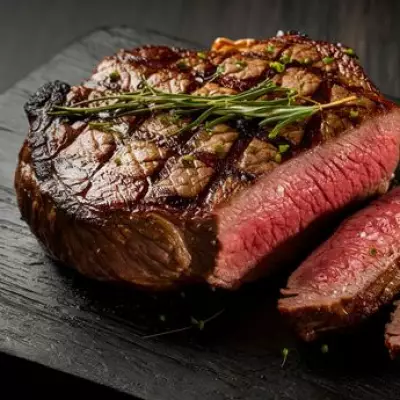
The Enduring Legend of the Gin and Tonic
Winston Churchill once famously proclaimed that the gin and tonic had saved more Englishmen's lives and minds than all the doctors in the Empire. More than a century later, this iconic beverage remains deeply woven into Britain's cultural fabric, though modern experts are examining its purported health benefits with a more critical eye.
The Calorie Comparison: Making Smarter Choices
While no alcohol is truly healthy, nutritionists suggest that if you choose to drink, some options are better than others. Ruchi Bhuwania Lohia, a registered longevity nutritionist, acknowledges the reality for many Britons: completely cutting out alcohol often feels unrealistic. She advocates for making small, sensible changes instead.
The numbers speak for themselves. A single shot of gin contains roughly 50 calories, a stark contrast to the 130 calories in a medium glass of wine or the 200-300 calories found in a pint of beer. When you add a 200ml serving of light tonic water at around 30 calories, a single G&T can stay under the 100-calorie mark.
"If you are swapping five pints of beer for G&Ts then that is a good decision," says Ms Lohia, "because it has fewer calories and will not cause bloating." Registered nutritionist GQ Jordan, with over a million Instagram followers, adds that clear spirits like gin are easier for the body to metabolise, creating less stress on your system.
Beyond Calories: The Quinine and Juniper Reality Check
The drink's origins trace back to nineteenth-century India, where the Royal Navy distributed tonic water rich in quinine from cinchona bark for its believed anti-malarial properties. To make the bitter tonic palatable, British admirals suggested mixing it with sugar, lime, water, and gin.
However, the health claims don't hold up to modern scrutiny. While quinine has been suggested as a remedy for restless legs, the therapeutic dose for malaria prevention is 14g/kg every eight hours. To achieve this through modern tonic water, you would need to drink 14 standard gin and tonics every eight hours—far exceeding the NHS's recommended maximum of 14 alcohol units per week.
Furthermore, modern tonics contain significantly less quinine than their historical counterparts. In the UK, Fever Tree tonic contains the highest levels at just 0.39 mg/mL, with the average at 0.34mg/mL. Consuming huge amounts of quinine carries risks including heart rhythm disturbances and allergic reactions.
The juniper berry story faces similar skepticism. While juniper contains beneficial flavonoids, vitamin C, and antioxidants, experts agree there simply isn't enough in a modern bottle or shot of gin to provide any meaningful health benefits.
"There is certainly no benefit from the antioxidants from juniper berries in gin or the quinine in the tonic," states GQ Jordan unequivocally.
The Mixer Matters: Your Choice Makes a Difference
Nutritionists emphasise that your mixer selection is crucial. "The mixer you choose is really important as well," advises Ms Lohia. Opting for a full-sugar alternative like Coke introduces significant sugar content, comparable to consuming port.
GQ Jordan explains another hidden benefit of the classic G&T: "The botanicals give the drink a bitter flavour which can slow the pace of drinking." Additionally, full-sugar mixers can disrupt blood sugar balance, leading to cravings and additional calorie consumption later.
For the average British man consuming 17.6 alcohol units weekly (equivalent to eight to nine pints of lager), switching to the same number of single-measure G&Ts could mean cutting around 900 empty calories weekly. This change could potentially lead to losing a stone within a year, though experts don't recommend exceeding 14 weekly units.
The consensus is clear: while Churchill might have romanticised the gin and tonic's medicinal virtues, today's reality is about making informed choices. As GQ Jordan advises clients: "Choose two drinks you really enjoy to begin with before thinking about switching to a non-alcoholic alternative and ensuring you drink water between each drink."






